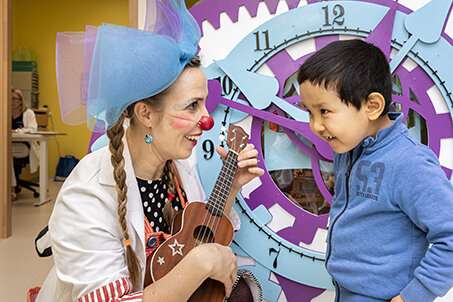Researchers say culture and the arts should have a stronger role in healthcare

Studies show that culture and the arts can have positive effects on health.
"Incorporating the arts in healthcare services is an investment in a person's comprehensive wellbeing. It's especially important in long-term care," says researcher Kai Lehikoinen, who is the director of the Center for Educational Research and Academic Development in the Arts (CERADA) at the University of the Arts Helsinki (Uniarts Helsinki) in Finland.
Modern hospitals strive towards the safety of operations, high-quality diagnostics and efficient treatments. Health is examined from the point of view of a person's biological wellbeing, which is also the basis when planning treatment practices. Not much attention is paid to culture and the arts.
"The experience of chronically ill patients, in particular, is often that they don't have access to art and culture in their treatment environment," notes doctoral student Taru-Anneli Koivisto from Uniarts Helsinki.
Culture and the arts benefit health
The positive impact of culture and the arts can have multiple health benefits.
According to an extensive report released by the World Health Organization, the arts can influence the social factors related to health, contribute to children's development, promote health-enhancing behavior, prevent illnesses and support treatment of patients. Artistic activities can also help mental health rehabilitees and those with neurological disorders and bring benefits to acute care and the treatment of non-communicable diseases. Art can also play an important role in terminal care.
"It would be wonderful if methods that are proven effective could be integrated efficiently into everyday treatment practices," says Professor of Clinical Nursing Science Sanna Salanterä from the University of Turku, Finland.
Making organizations more agile through culture
When more attention is devoted to the arts and culture in health services, caring for patients will become increasingly more ethical.
"When we understand the cultural contexts of health, it helps us view patients as individuals whose lives, wellbeing and health are, to a large extent, defined by culture. Taking the patient's cultural needs into consideration will support their wellbeing in a time of illness and crisis," Lehikoinen notes.
With the help of art, organizations could establish a more open way of doing and discussing things, experts explain. This would help personnel working in health service organizations adopt a more balanced view of what wellbeing entails and strengthen their mutual trust. As a result, organizations could also become more agile than before.

















